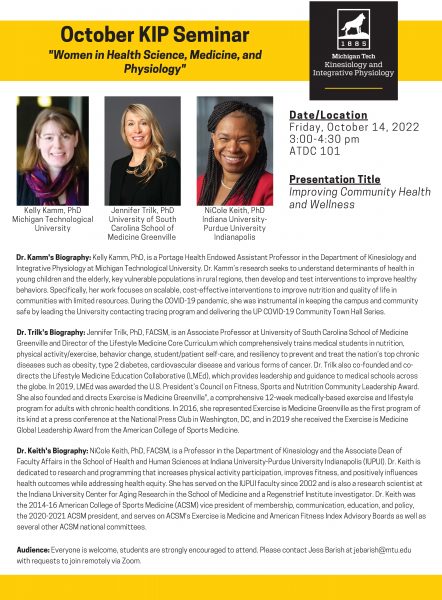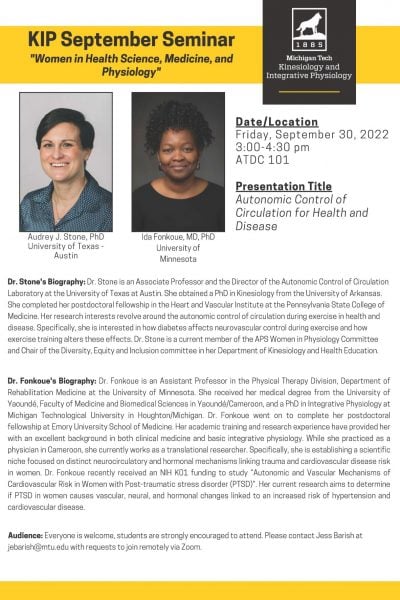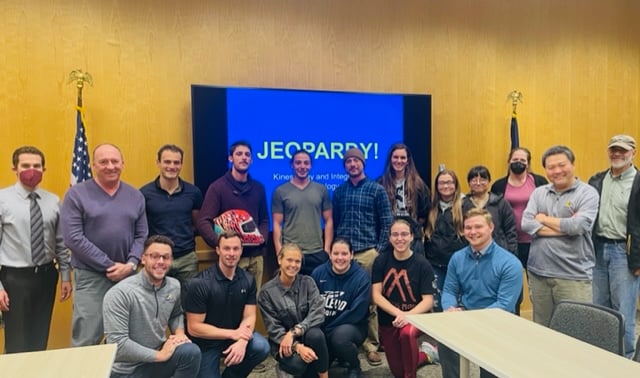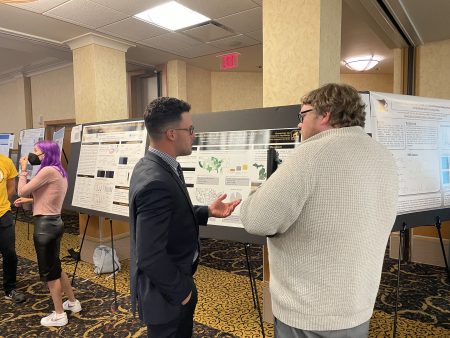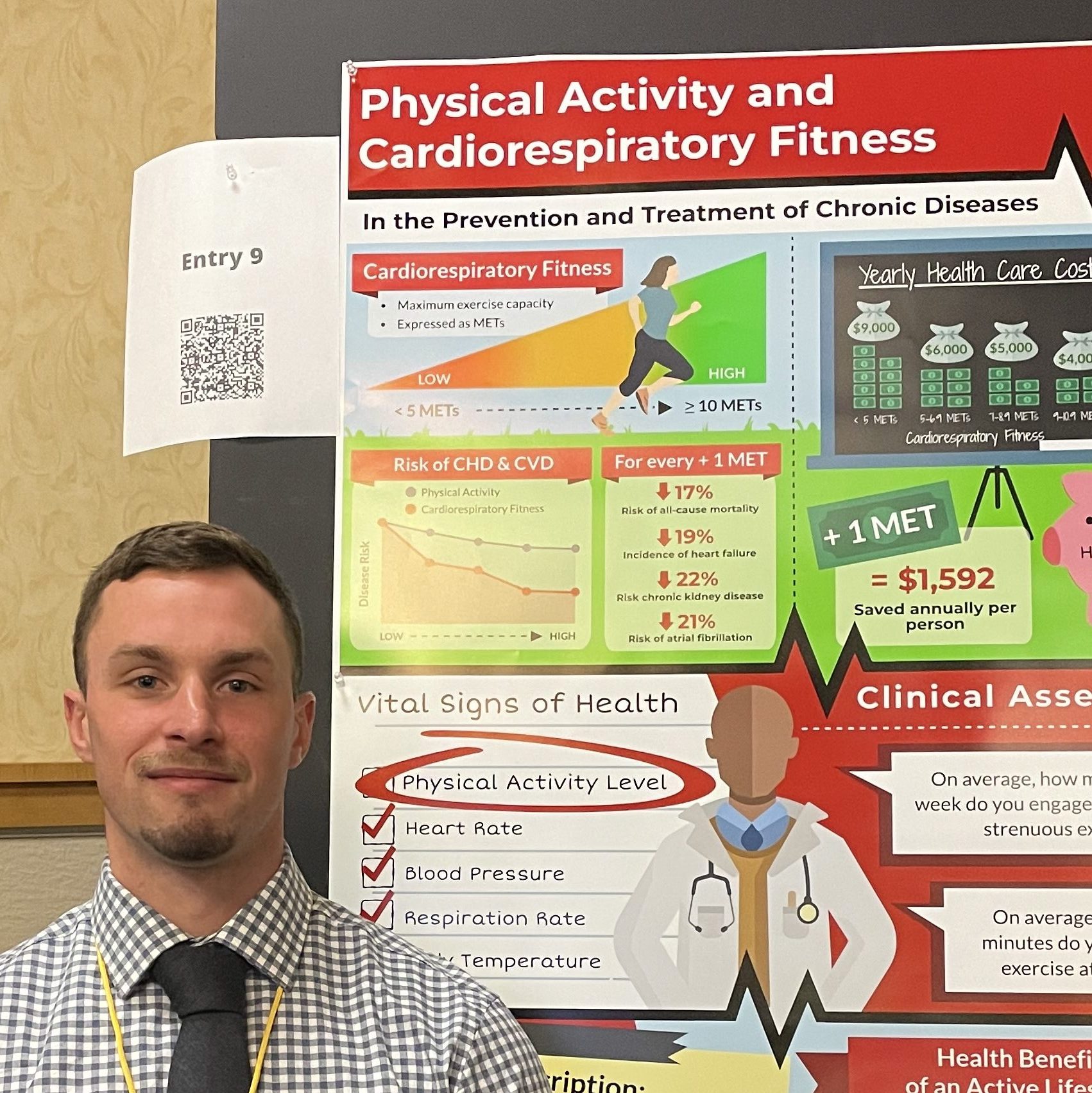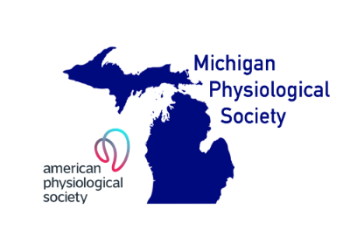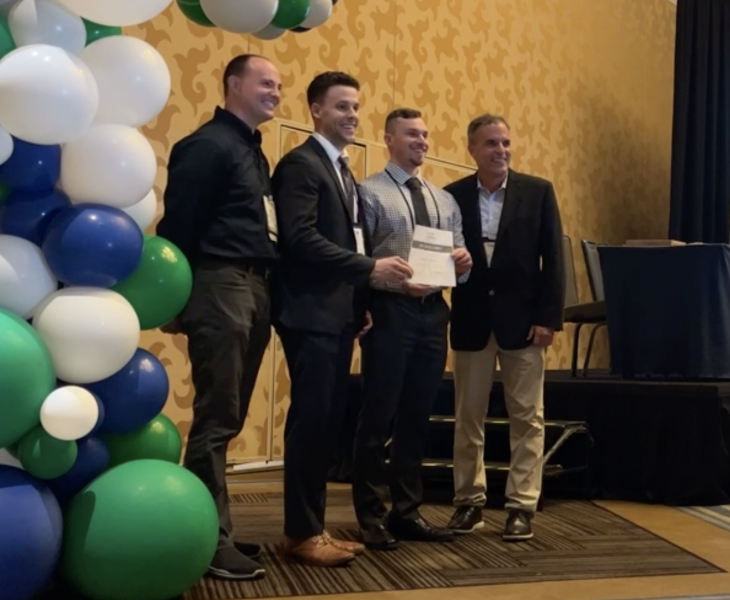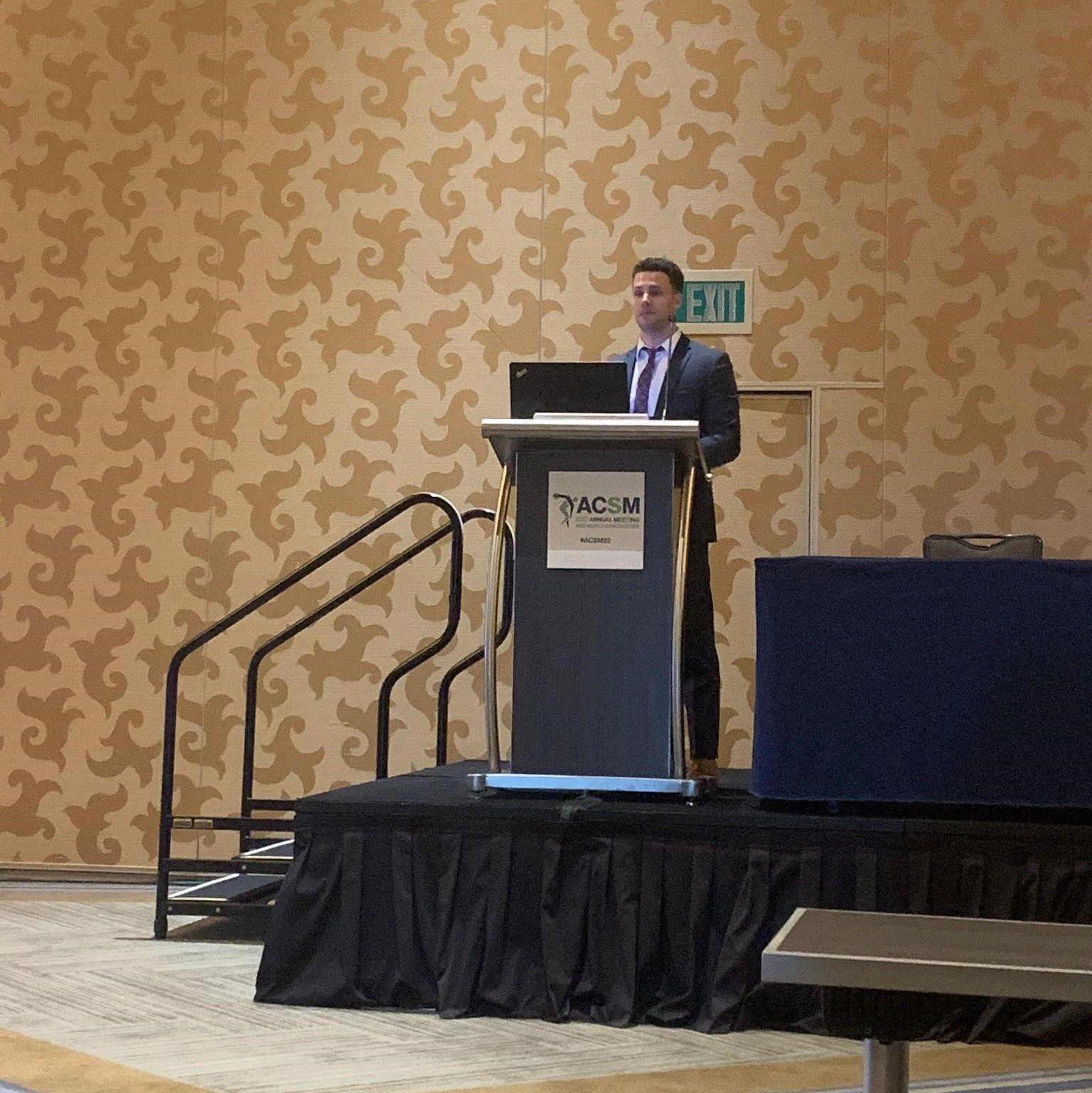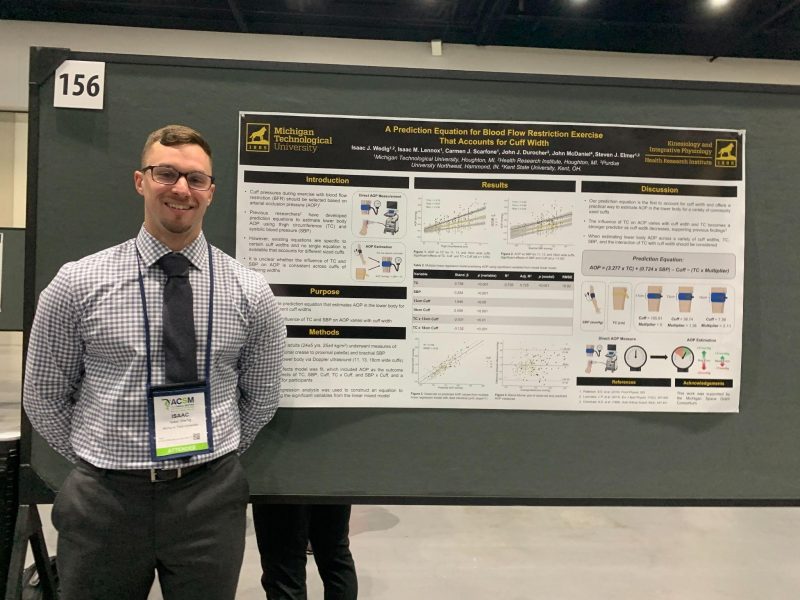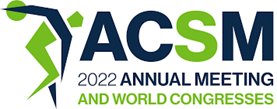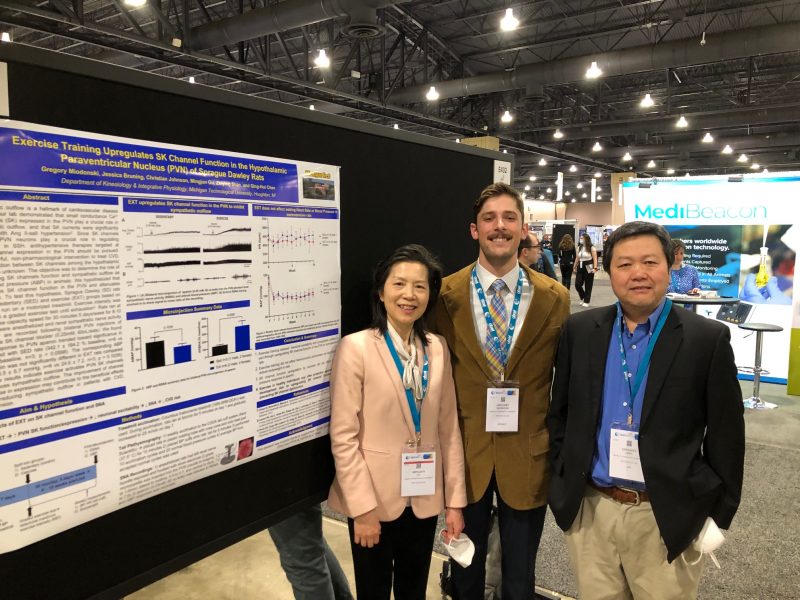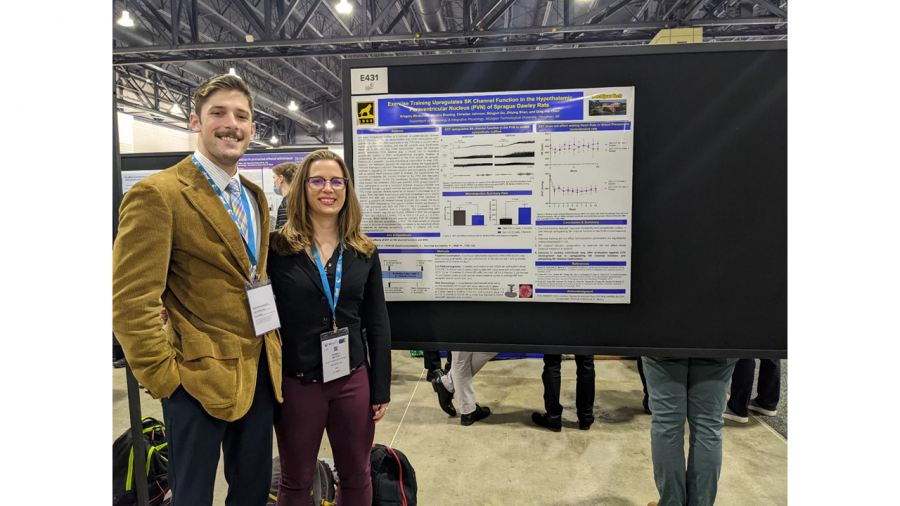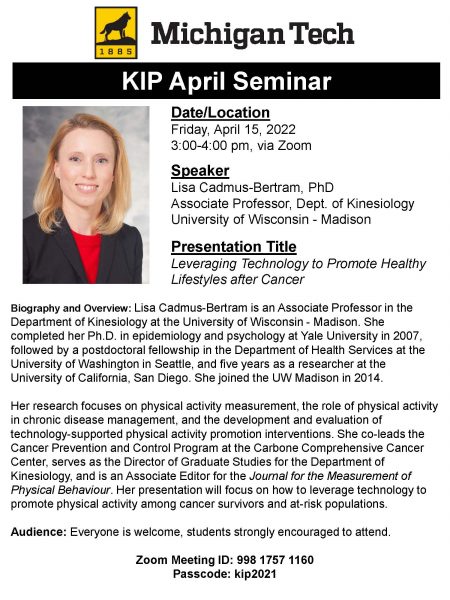Join us Friday, October 14 (3:00-4:30pm), in ATDC 101 for our October KIP Seminar. The seminar will include a symposium focused on “Improving Community Health and Wellness” and continue to support our Promoting Women in Health Science, Medicine, and Physiology semester theme.
Symposium Speakers
- Kelly Kamm, PhD – Portage Health Endowed Assistant Professor (Michigan Tech)
- Jennifer Trilk, PhD – Associate Professor (University of South Carolina)
- Nicole Keith, PhD – Associate Dean and Professor and Past-ACSM president (Indiana University)
Topics to be discussed
- Community health needs in our rural Upper Peninsula of Michigan Region
- Academic-clinical partnerships to improve the health of the community through physical activity as medicine
- Physical activity programming, participation, and health outcomes while addressing health equity
